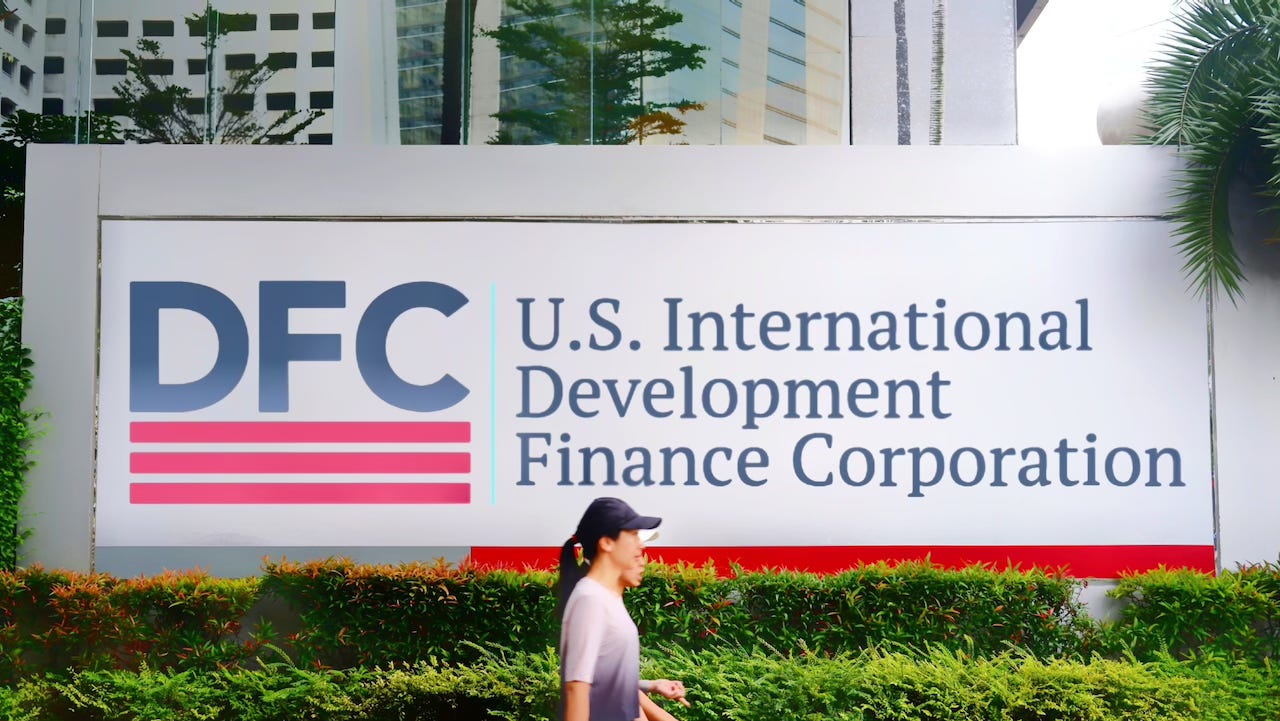A Stronger DFC for a Freer, More Open World
With an Oct. 6 deadline looming, reauthorizing the DFC is essential to America’s strategic and development leadership
The Trump administration’s recently released proposal to reauthorize and expand the U.S. International Development Finance Corporation (DFC) reflects many of the recommendations we advanced last year at the Wahba Institute for Strategic Competition (WISC) on how to activate American investment overseas for a freer, more open world. We commend the administration for moving decisively in the right direction, and we urge Congress to act with urgency to reauthorize DFC before its Oct. 6 deadline.
Last year, WISC called for a DFC that would focus its resources on strategic priorities that strengthen our alliances and counter authoritarian influence: trusted digital infrastructure, ports and sea lanes, and critical minerals. These sectors underpin economic security and global competitiveness, and it is encouraging to see the administration adopt this focus in its framing of DFC’s expanded mandate.
Importantly, WISC does not see this expanded focus on strategic priorities as taking away from DFC’s development mission. Indeed, the broader mandate we recommended—and the administration is now advancing—should allow the agency to more fully achieve both strategic and development outcomes. At a time when U.S. funding for other forms of development assistance faces pullbacks, DFC’s ability to catalyze investment is even more vital as we contest the allegiances of other nations with authoritarian powers who deploy development finance as a geostrategic tool.
Where the Administration Took WISC’s Recommendations
The administration is moving directionally in several other areas WISC highlighted last year:
Equity Revolving Fund: We recommended creation of an equity revolving fund so DFC can recycle returns and operate more like peer development finance institutions. The administration’s proposal does just that, giving DFC new flexibility to take calculated equity risk and reinvest profits over time.
Speed and Process Improvements: WISC called for streamlined approvals to remove bottlenecks in deal execution. The administration’s plan raises the threshold for Congressional notification from $10 million to $100 million—a meaningful step toward eliminating indefinite delays. While we continue to advocate for internal board process reforms and single environmental reviews to further speed DFC’s ability to compete with rivals like China, the proposal marks progress.
Broader Country Reach: Our recommendation to widen the number of countries in which DFC can operate was intended to ensure U.S. development finance can advance strategic priorities in markets where authoritarian competitors are most active. The administration’s expansion of eligibility to select high-income countries is consistent with this direction, provided robust additionality safeguards remain.
Addressing Human Capital: We flagged the need for greater flexibility to hire and retain specialized talent. The proposal to add “administratively determined” positions at DFC is an important step in building a workforce capable of executing a larger, more complex mandate.
Endorsing a Bigger Role for DFC
We strongly endorse a bigger role for DFC and support raising its portfolio cap from $60 billion to $250 billion, as proposed. But size alone will not maximize impact. WISC recommendations that would further strengthen DFC include:
Restructure governance and streamline internal approvals: As noted in our infrastructure finance recommendations, shifting to a smaller, expert voting board and raising internal approval thresholds will complement Congressional notification reforms to reduce delays.
Modernize environmental and permitting reviews: Implementing a single, trusted review process would align with best practices and avoid duplicative assessments.
Broaden the mobilization toolkit: Codify authority for subordinated debt and loan participations to unlock private capital at scale for strategic projects.
Guardrails on expanded eligibility: Allow investment in upper‑middle and high‑income countries only when additionality and development impact can be demonstrated. The goal should be maximize private capital mobilization.
The Urgency of Reauthorization
The stakes could not be higher. As we have chronicled repeatedly, from ports and maritime corridors to critical mineral supply chains, U.S. competitors are moving aggressively to shape the economic infrastructure of the future.
A fully empowered and reauthorized DFC is one of the most effective tools we have to counter these efforts. Even a short gap in authorization could irreparably damage DFC’s reputation as a reliable partner. Congress should move quickly to reauthorize DFC before its Oct. 6 deadline—whether through a stand‑alone bill or a continuing resolution—and hard‑wire the improvements that will ensure DFC is agile, accountable, and laser‑focused on both strategic and development priorities.
An expanded and strengthened DFC can simultaneously achieve its dual mandate: advancing U.S. strategic interests while delivering meaningful development impact. Congress must act now to realize that vision.
In line with my belief that responsibly embracing AI is essential to both personal and national success, this piece was developed with the support of AI tools, though all arguments and conclusions are my own.
